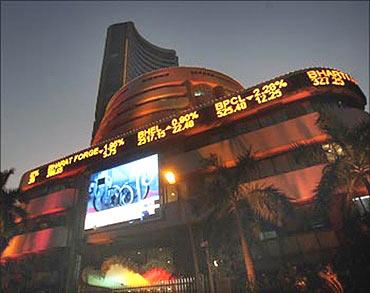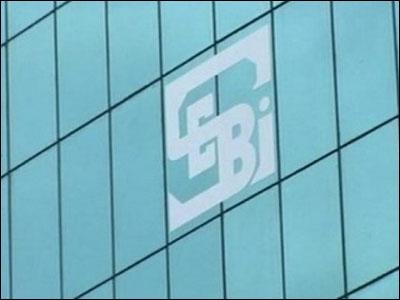
There are several theories to account for this poor response.
Retail investors shunned the Bharti Infratel initial public offering.
Thirteen blue-blooded investment bankers marketed the issue in India and abroad; while institutions responded overwhelmingly, only 19 per cent of the shares reserved for small investors were bid for.
There are several theories to account for this poor response.
One blames the promoters' track record -- how 10 years ago the Bharti group unceremoniously delisted one of its companies without regard for small investors.
Other theories claim poor business prospects for the company and steep pricing.
A third set says retail investors lack confidence.
. . .

Instead, consider the numbers for three other public issues that opened just ahead of Bharti Infratel.
Of this, the CARE IPO saw retail investors bid for some 15.6 million shares when 2.6 million shares were on offer.
Thus, at the bottom end of the price band, Rs 1,089 crore (Rs 10.89 billion) worth of retail money was stuck in the CARE IPO.
Similarly, a further Rs 327 crore (Rs 3.27 billion) was put in the PC Jewellers issue.
And then there was the REC tax-free bonds issue, in which small investors put in a further Rs 960 crore (Rs 9.6 billion).
. . .

Thus, a total of Rs 2,376 crore (Rs 23.76 billion) had already gone into the market in the week when Bharti opened.
Assuming each investor subscribed for an average of Rs 100,000, at least 237,600 investors participated in the primary market issues over last week excluding the Bharti Infratel offer.
And although the total value of the retail portion for CARE was Rs 176 crore (Rs 1.76 billion), an additional Rs 913 crore (Rs 9.13 billion) was locked in there; similarly, Rs 130 crore (Rs 1.3 billion) worth of oversubscription was stuck in PC Jewellers and possibly Rs 563 crore (Rs 5.63 billion) in REC -- these added up to Rs 1,606 crore (Rs 16.06 billion).
. . .

The total value of the retail portion of the Bharti offer, at the lower end of the price band of Rs 210, was Rs 1,388 crore (Rs 13.88 billion).
It received bids worth Rs 257 crore (Rs 2.57 billion), a shortfall of about Rs 1,131 crore (Rs 11.31 billion).
It is debatable whether all of this money, if free, would have come to Bharti Infratel.
But some could have -- if the allotment and refund processes were not so slow.
This is where critical, long-stalled reforms in the IPO market could have helped.
The market regulator, Securities and Exchange Board of India, was till recently trying for a three-day timeline for public issues, under which money invested in one issue gets released in three days.
. . .

This is critical for the rotation of capital, as the primary market is made of a small universe of specialist investors who hop from one issue to another.
Sebi did well by introducing Asba (application supported by blocked amount), wherein investors could apply for IPOs without money leaving their account, and enabled IPO timelines to shrink from 21 days to the present seven.
But further progress towards the original target of three days has been slow, if not absent.
It would be better if the regulator focused on these critical process improvements rather than looking at character-altering steps such as safety nets.